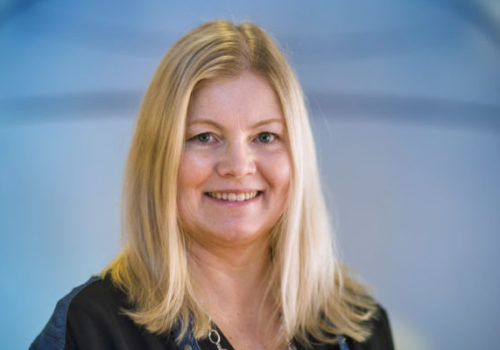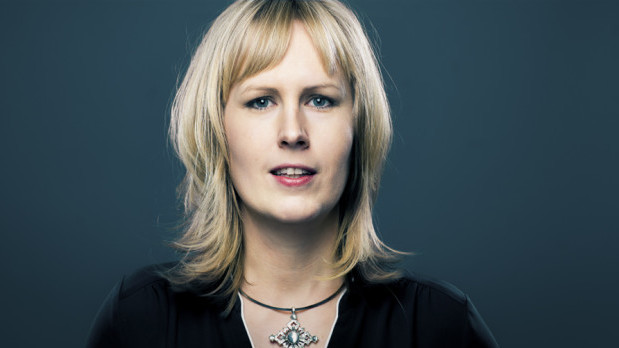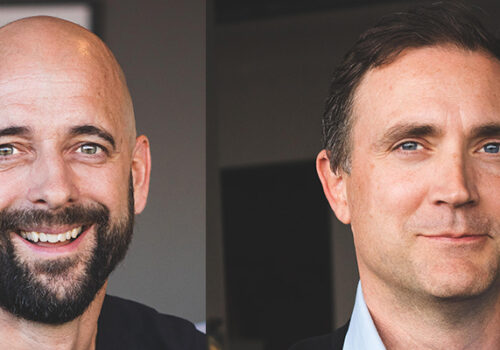As an industrial PhD student, you get a unique chance to gain a deeper understanding of the industry and obtain valuable experience to bring to your future career. Industrial PhD student Kasper Fjelbye has expanded his knowledge in organic chemistry into practical applications at Lundbeck.
Eight years ago, Kasper Fjelbye entered the University of Copenhagen to study fundamental and advanced organic chemistry. He received a Bachelor’s degree and it was as he was doing his Master’s thesis that his path to the Danish pharmaceutical firm Lundbeck started. One of the university professors had a connection at the company. Kasper found a supervisor at the firm and then initiated his time as an Industrial Master’s student at Lundbeck. He worked on synthesis, characterization and biological evaluation of several potential CNS active pharmaceutical ingredients.
He was awarded his M.Sc. in Medicinal Chemistry in 2014 and is currently in his 3rd year as an Industrial Ph.D. student at Lundbeck. Kasper is stationed at the discovery chemistry department, working on a project with the aim to expand the existing medicinal chemistry toolbox to aid researchers involved in the drug discovery process. The task is focused on looking at ways to sneak a fluorine atom onto a molecule to impact key biological properties.
“Part of what we want to do is take compounds that already have an established activity. They might be known as active in the literature but could have other weaknesses. Even if they can reach the target in the brain, these molecules often tend to get thrown out. With fluorine we can strategically install it at a certain site of a molecule to manipulate its overall properties, and as a consequence reduce its tendency to be expelled without destroying the molecule’s activity. It’s a small molecular change, but one that could possibly have a large impact,” he says.
Expanding the tool box
Kasper is now submitting his fluorinated molecules to biological tests to see if there is a potential for further clinical development. He is working with one type of building block molecules with the hope to provide an additional set of accessible molecules in the chemist’s tool box that can be included during the discovery of new medicine, for instance for the treatment of brain diseases.
“It would be very cost-effective and easy for medicinal chemists to include those extra fluorinated molecules in their drug discovery programs, as the[GA1] molecules can easily be obtained with our technology, to examine if they would be effective on a certain biological target or not. But it is very complex to precisely predict the consequence of having the fluorine present at this stage. We could end up with a scenario where the once active molecule doesn’t even recognize its target anymore.”
The success criteria of an industrial Ph.D. study is not completely aligned with what is most important for the company. The student needs to publish and the company needs to protect their inventions with patents. Therefore, a good industry project should be focused on a subject that is interesting for the company, but not vital for their business, in order to allow the results to be published.
“That way I can talk about our published technology outside of Lundbeck, but they can also benefit from the “know-how” in their own drug discovery programs,” he explains.
For Kasper, this is an excellent opportunity to combine his background in organic chemistry with medicinal chemistry. At Lundbeck he has the opportunity to have molecules tested biologically and get results directly from professional partners.
“That is one of the key differences compared to academia. Here we can submit a range of new molecules for biological testing at the company and a couple of weeks later receive data that allows us to make the next molecule based on that data. You really feel that what you produce has industrial applicability and is not only done for the sake of science.”
Fascinated by neurology
It was a longtime fascination with the mysteries of the human brain that eventually led Kasper to Lundbeck.
“Those small neurological differences that exist between people can cause a significant difference in life quality. The fact that one healthy person can see the world in a positive light and a depressive person see the objectively same thing as dark and hopeless is something that has always intrigued me.”
The knowledge he has gained at the university about this complex organ has been very satisfying. Getting a foothold inside Lundbeck has transferred him closer to reality.
“To see what industrial scientists do, talking about patients, treatments and new methodologies for making molecules has been so exciting.”
Getting a grasp on the real world
After almost five years at Lundbeck, Kasper feels that he has gained a much better understanding of all the stakeholders in the drug discovery process and of what factors are important in drug development.
“I have had to learn much about the mindset in industry, which I have understood as really goal-oriented. There are so many things that you could do but in the end you have to prioritize what is cost-beneficial to make the project go forward, an approach that I have tried to internalize in my own work. It has also been very rewarding to meet the people in the industry and get an insight into what a future job could look like.”
Choose a project with a wide scope
For others who have thoughts about an upcoming time as an industrial PhD student[GA2] , Kasper has some good advice. One is to make use of various networks, not least your network at the university.
“That is how I managed to enter the industry. I actually tried to get a Bachelor position at Lundbeck and wrote an unsolicited application. That didn’t work, but as I did a Bachelor’s degree project with a professor at the university who had a connection inside the company, he was kind enough to help me secure a position for the M.Sc. project. That proves how important networking is,” Kasper concludes.
Also, try to make a decision early on about the direction of your Industrial Master’s project. Kasper recommends, if possible, to choose a project that is not too close to the core business of the company.
“Keep in mind that you would want to show your published work to future employers, so go with a subject that is not bound to complete secrecy[GA3] .”
Feedback from supervisors
Making the right research decisions can be a tricky and difficult task at times. Kasper has had much help through guidance and support from his two supervisors at Lundbeck, as well as the academic supervisor at university.
“They have functioned as my mentors. I feel lucky to have two supervisors at the company, which is quite common in most industry PhD programs. That way there is almost always one of them who has time for discussions to get another perspective on my thoughts and to move the project forward.”
Exciting time at renowned US research institute
During his PhD studies, Kasper also had the opportunity to spend six months abroad, more precisely in San Diego. He got the chance to work for Professor Phil Baran at the Scripps Research Institute and be involved in projects with big pharma.
“We did a collaboration with Pfizer that ended up being developed into to a product that is now sold online. It was truly very satisfying to take a step away from the regular studies and work with completely unrelated projects to learn something new.”
Patent law could be a future
Remembering the positive experience from his time in San Diego, Kasper is considering going back to the States once he finishes his studies. It depends, however, on which career path he chooses. One path that he has been leaning towards is the patent law profession.
“Combining my passion for organic chemistry, the experience I have from Lundbeck’s discovery chemistry department and a huge interest in what happens at the intersection between business and science seems to me to be a solid foundation for a career in the patent profession.” he says.
European patent law differs from the US patent law, however, thus moving across the Atlantic Ocean requires some more consideration. Kasper will achieve his degree in January 2018, so there is still time to ponder upon the future.







